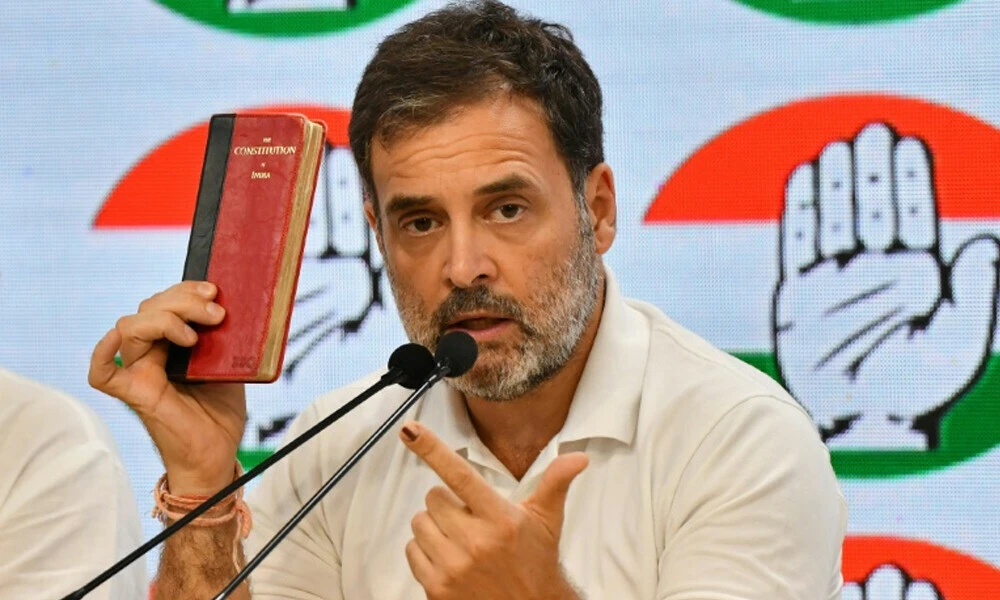India's Rahul Gandhi appointed as parliamentary leader of opposition

Stay tuned with 24 News HD Android App

Prime Minister Narendra Modi's chief rival, Rahul Gandhi, was appointed Tuesday to lead India's opposition in parliament, a key post that has been vacant for a decade, signalling a reinvigorated challenge to government.
The decision is significant because in the past two parliaments, Gandhi's once-mighty Congress party did not have enough seats in the legislature to qualify him for the post.
Hindu-nationalist Modi, 73, on Monday appealed to a strengthened opposition for consensus following an election setback this month that forced him into a coalition government for his third term in power.
Gandhi, 54, defied analysts' expectations and exit polls to help his Congress party nearly double its parliamentary numbers, its best result since Modi swept to power in 2014, and rescuing it from the political wilderness.
Congress party general secretary K. C. Venugopal said Gandhi would be "a bold voice for the common people of India" and ensure the government "is held firmly accountable at all times", he told reporters in a statement.
Venugopal said Congress party chairperson Sonia Gandhi, Rahul's mother, had written to the parliament temporary speaker informing him he "is appointed as the Leader of Opposition in the Lok Sabha", India's lower house.
Gandhi is the scion of the dynasty that dominated Indian politics for decades and is the son, grandson and great-grandson of former prime ministers, beginning with independence leader Jawaharlal Nehru.
Parliamentary regulations require the opposition leader to come from a party that commands at least 10 percent of the lawmakers in the lower house.
'Fulfil this duty'
Modi's first two terms in office followed landslide wins for his right-wing Bharatiya Janata Party (BJP), allowing his government to drive laws through parliament with only cursory debate.
Dozens of bills were pushed through the legislature hours after they were introduced, including a contentious and far-reaching overhaul of India's criminal justice code last year.
Unable to stymie the government's legislative programme, Gandhi and Congress were reduced to staging regular symbolic walkouts of the chamber and demonstrations outside parliament.
However, the BJP won only 240 seats in this year's poll, its worst showing in a decade, and 32 seats below a majority.
That forced it to rely on coalition allies to build a 293-seat majority in the 543-seat lower house.
With the BJP now reliant on coalition allies to govern, and Congress nearly doubling its seats in parliament, the dynamics of Gandhi's role will necessarily change.
Earlier on Tuesday, Gandhi took the oath in parliament as a newly-elected lawmaker.
"To protect the Constitution is the duty of every patriotic Indian," he said shortly after in a statement. "We will fulfil this duty in full measure."
Gandhi is one of several top opposition figures to face criminal proceedings in cases they claim are politically driven by Modi's government.
He was sentenced to two years imprisonment last year in 2023 in a separate case in Gujarat but was not jailed after appealing with India's top court.
The sentence did, however, force his brief disqualification from parliament until the Supreme Court suspended his conviction.
